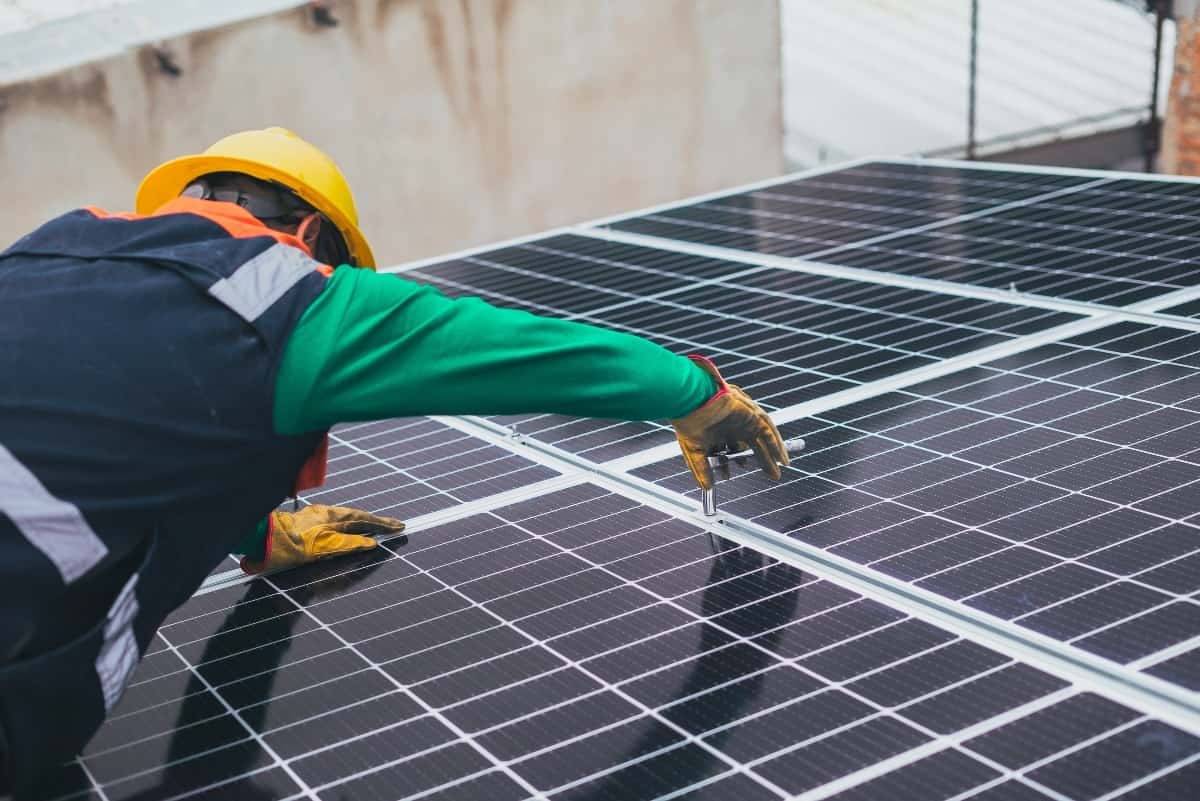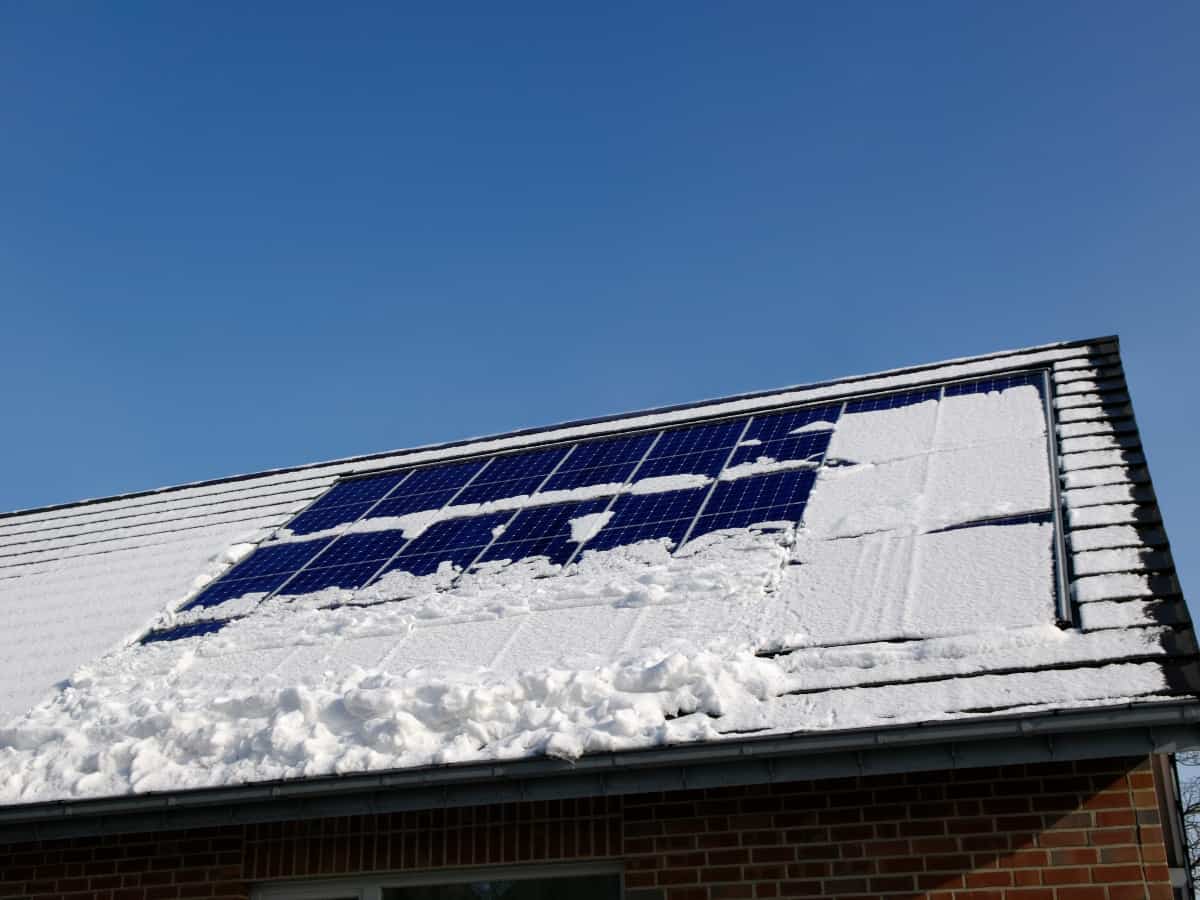If you live in a community with homeowners associations (HOAs), you might be wondering if solar panels are allowed. Solar panel systems have become more common and energy efficient, but many HOAs still use building codes that were established decades ago. Many of these standards make sense, but they also have unintended consequences for homeowners who want to go green. Here’s what you need to know about HOA and solar panels.
Discover Energy Audits with Solar Energy and ONIT Home
Try our Free Energy Audit to make sure your home is performing at optimum energy efficiency. We’ll inspect every nook and cranny of your home to make sure it’s best serving your needs. We’ll also give you tips on lowering your energy bills, conserving energy, and creating a more efficient space. To learn more about how we can help you maintain a top performing home, visit us online to get started!
What is a Homeowners Association?
A homeowners association (HOA) is a group of people who own property in a specific neighborhood, community, or subdivision. Homeowners that agree to live by mutually accepted rules and regulations, as well as chosen administrators, make up an HOA. These rules are called covenants, conditions, and restrictions (CC&Rs).
What is the Role of an HOA?
The main role of an HOA is to protect the property values of its members, namely other homeowners in the community. This means that the HOA will take steps to ensure that neighbors are compliant with its rules and regulations. Many HOAs have strict regulations in place about what you can install on roofs and walls of both material and color choices. In some cases, they even prohibit homeowners from putting up any type of object onto their walls or roofs! This includes solar panels and satellite dishes.
If you’re planning to make any changes, make sure first that it doesn’t conflict with any existing HOA restrictions. This ensures that you won’t have any issues later when trying to sell your property.
HOA and Solar Panels
Whether your HOA can place restrictions on solar panels depends on where you live and what your HOA rules are. Some communities may restrict solar panels because they feel they are out of place with the rest of the neighborhood. Other communities may allow them as long as they meet certain aesthetic requirements.
You will need to check your community’s covenants, conditions, and restrictions (CC&Rs). These are legal documents that outline what you can and cannot do with your property. Certain neighborhoods may prohibit solar panels or may require prior approval from the HOA board before installing solar panels.
For the most part, HOAs do not have control over what type of energy sources people use in their homes. However, an HOA is likely to restrict its residents from installing anything that could presumably lower property values or upset neighbors. They might try to prohibit solar panels as well.

Can My HOA Prevent Me from Getting Solar?
These laws exist to prevent HOAs from restricting homeowners from installing solar panels. In California, half of all new homes built have solar panels. State law requires HOAs to allow them as long as they don’t cause any damage or lower property values.
Since California’s solar mandate went into effect, other states including AZ, UT, TX, FL, MA, and NY have created their own “solar rights” laws that prevent HOAs from banning solar panel installation on rooftops. For example, Florida Statute 163.04 prohibits any governing body (HOA) from banning the use of solar panels, clotheslines, or any other energy-saving devices.
More States With Solar Access Laws
In Arizona, HOAs, condominiums, and other community groups are not allowed to ban solar panels or other renewable energy resources. This is from the AZ Rev. Statute 33-1816.
Similar laws exist in New York, Utah, Texas, and Massachusetts. These laws prevent HOAs and Condominiums from imposing regulations that prohibit solar power systems or impose unreasonable limitations. It is important to understand the wording there. The organizations cannot prohibit solar panels installation, but they do have some control over where you intend to install them. They can place limitations under certain conditions, or deny it for areas with historical value.
So, if you live in an area with a historical landmark, or close to houses that are registered with the historical society, you may not be able to. This applies to all states, even those with solar access laws.
What If Your State Doesn’t Have Access Laws?
HOA residents in Arkansas, Mississippi, Connecticut, Alabama, Oklahoma, Pennsylvania, South Carolina, Michigan, Wyoming, and South Dakota are not guaranteed the right to install solar panels. These states have not adopted a “solar access” law. The answer to the question is, that it depends on where you live and whether or not your state has laws in place that protect your right to use renewable energy sources.
If your state does not have specific laws about solar panel installation, you will have to request permission from the HOA. If they do not respond within 30 days, they are legally required to allow them.

How to Avoid Problems With Your HOA
If you’re considering installing a solar panel system, there are some things you can do to avoid problems. First, take the time to research the laws in your state. Many states have passed legislation prohibiting HOAs from restricting homeowners from installing solar panels on their property. If you’re not sure about the rules where you live, make sure to check with a legal expert before proceeding.
Next, find out what your HOA’s regulations are regarding the installation of new structures such as fences or sheds. Once again: consult an attorney if necessary!
If You Take the Right Steps, You May Be Approved
The first thing is to try to talk with the HOA about the issue. You may just agree to install solar panels that work for both of you. Although HOA and solar panels don’t exactly go together, they may give in if presented with a good reason.
Second, check with your state’s laws to see if they address solar panel systems at all. The following states allow residents to install solar equipment without approval from the HOA:
- California
- Delaware
- Hawaii
- Illinois
- New Jersey
Florida residents can install solar equipment without HOA approval if it doesn’t violate any covenants or restrictions of their community. If your state does not require approval but your HOA has rules against them, no need to panic. Get a copy of the board’s bylaws and assessment policies. That way you can look up what type of voting process they’ll use on this issue. If they don’t have any specific regulations against installing solar panels yet decide to pass them before you install yours—don’t worry!
If You Hit a Brick Wall
All hope isn’t lost because there are ways around this too. (1. Talk with other homeowners who might be able to support you. (2. Ask if there’s an alternative location on your property where placing these panels would cause no harm. (3. Find out when board meetings will take place so that you can show up in person with all relevant documents. (4. Be prepared ahead of time by including letters from other homeowners who are in support of your decision.
The main reason most HOAs don’t allow residents to install solar panels is because of aesthetics and safety concerns. They think it looks bad or might pose a danger to children playing in the area around them. But as we’ve seen with other homeowner associations, proper planning, and installation techniques eliminate these concerns.
Other Options to Consider
There are workarounds for getting what you need. If you live in a condo or townhome, your HOA may not allow you to install solar panels. To get around this problem, you can buy a new home with solar panels already installed or build one.
Community-owned Solar. A community solar project is simply a solar array installed somewhere on the land around the building. It is usually set up on an unused space like a lawn or parking lot. For community solar customers, purchasing or leasing solar panels is an option, and they receive an electric bill credit for the electricity generated by their share of the system, similar to rooftop solar.
Any surplus energy that goes beyond what each unit needs is sold back to the power company as green energy. That way everyone gets to use clean energy without having to pay more than necessary for it. If nothing you have tried worked, then your next step could be to consider filing a lawsuit against the HOA. If they’ve violated your rights under federal law as a homeowner, then you may have a case.
The FTC is Cracking Down
HOA and solar panels are a hot topic. The Federal Trade Commission is cracking down on HOAs that refuse to allow the installation of energy-efficient features. The FTC has received complaints from consumers saying their HOAs have denied permission to install solar panels or solar-powered lights.
The FTC says it has sent letters to hundreds of HOAs across the country. These letters serve as a reminder of their obligation. Federal law requires them to give homeowners a fair hearing on any rules that affect their property rights.

Speak with a Solar Expert Today!
ONIT Home is a leading provider of solar power systems. We can help you choose the products and set you up with a solar power system that is perfect for your needs. We are committed to providing the best quality products and services. With ONIT Home, you can be confident that you’ll have power when you need it! Visit us online or give us a call today at 1-833-433-0331 to get started.



